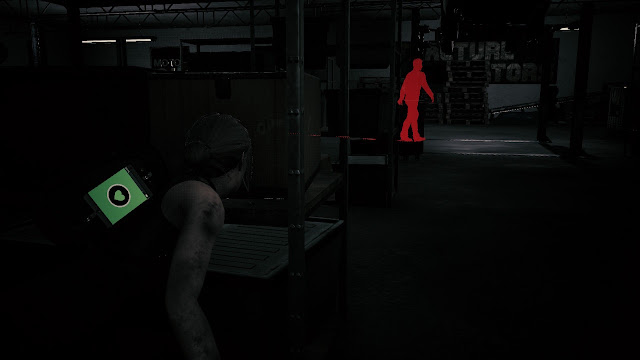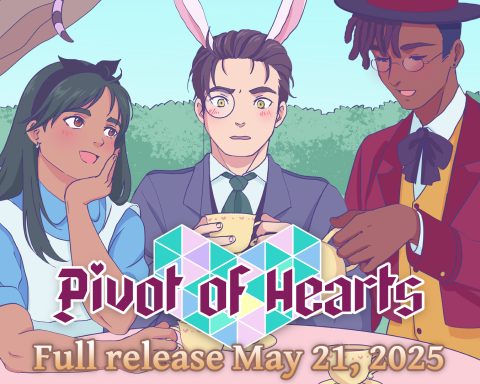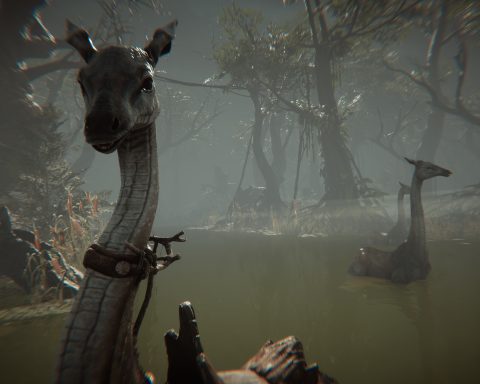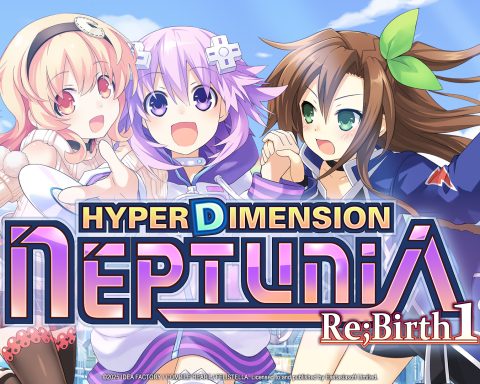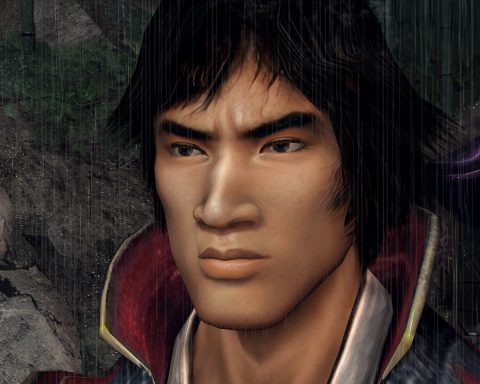Where do I even start with this pile of trash? There are just so many things wrong with it… oh, I know. Let’s start with the Christian thing, shall we?
As a mood-setting exercise, Grey Skies: A War of the Worlds Story likes having you travel over long stretches of land (on foot or in a vehicle) while the volume turns itself up and complete tracks of sorrowful music play in the background. We’ve seen the technique work well in the past with, most notably, Hideo Kojima elevating it to an art form in Death Stranding. When it’s done well, this technique of elevating the music to become the focal point over the course of a journey conveys a sense of lonely dread and introspection. In theory, it could work with a War of the Worlds story, since H.G Wells and Kojima share a certain aesthetic and mood with their respective apocalypses.
This indie take on the Wells classic tries to do the same thing. However, as I started listening to the first track in Grey Skies: A War of the Worlds Story, which played as the protagonist, having survived a plane crash, picks her way across some burning forest, I noticed something about the lyrics. See if you can spot the particular texture in there that I found to be curious:
Hypocrite, oh, hypocrite
Lord please help
The end of my rope
I have no other place to go
Run away, oh, run away
Lord please help
Run away, oh, run away
Now I had not heard this song before, but the lyrics stuck with me, so I actually replayed the game’s utterly abysmal opening section again (never start a game with a “mission” to collect toilet paper and breakfast cereal from a supermarket) just to hear the song again. This time I Shazamed it, and up popped a band name: “The Brilliance.” Some research later I have discovered that The Brilliance is a Christian music band signed to one of those non-profit “worship” labels – this one being owned by a book publisher that specialises in Sunday school curriculum in America.
That made my skin crawl about as much as it does when “concerned neighbours” try shoving bibles into my hands after door-knocking me on a Saturday morning (to be fair, I really should put on clothes when answering the door…). But, fine. It’s one track, and it sounds sorrowful enough, so I thought that perhaps the developer just stuck it in there because they were working on a micro-budget and wanted that Kojima Death Stranding effect on the cheap. But then a half hour’s play later, my character had acquired a car, and another full music track over a lonely drive popped on. See if you can spot the particular texture here:
Holy Anthony,
Your passion is something that I’m seeking
To emulate, although my actions flawed
Lost and I don’t know where I’ve been
Hold me at the knees
That song, a second trip to Shazam told me, is called “St. Anthony” and comes to us via a solo act, Joel Porter. Here’s a little bit on Porter’s website, in which he describes the inspiration for the song: “St. Anthony is the patron saint of lost things… I’ve talked to him a million times while searching for things in random moments of displacement… I never thought I’d be praying to him for the sake of my soul.”
Right. Fool me once shame on you, fool me twice, shame on me. The creators of Grey Skies: A War of the Worlds Story clearly, explicitly, snuck Christian worship propaganda into their game. Far be it for me to suggest that Christians can’t make Christian games, but in this particular instance, it is really ironic since H.G. Wells (remember, the guy that wrote War of the Worlds) has always been distant from religion. When he was younger, he went as far as to write a book-length essay called God the Invisible King. In that – and remember, he took the time to write an entire book of his thoughts here – Wells makes it explicitly clear that he has no patience for church-going brow-beaters. Among other passages, God the Invisible King states: “whatever religious congregations men may form henceforth in the name of the true God must be for their own sakes and not to take charge of religion.” Wells still had some form of religious belief at a personal sense at that point, but that was the closest he ever came to God; later on his life he found himself increasingly atheistic in his beliefs. Wells was only 32 when he published War of the Worlds, but even then, Lord Almighty, he would have objected to the interpretation of his work as an opportunity to push Christian worship music on people.
Putting the insult to the author aside, it’s not that War of the Worlds is particularly religious in the first place. You can undertake a Christian reading on it – as you can with just about any text – but it’s not explicitly preachy or a work of theological philosophy. So why the developers decided to make it one can only be attributed to one reason; they wanted to make this a Christian game, and then try and hide it to make it palatable to the broader community by hiding it into the soundtrack. Why have I spent so much of this review talking about this, you ask? It’s quite simple; if you want proof of just how far off the mark Grey Skies in as an interpretation of War of the Worlds, you just need to look at the fact they turned H.G Wells into a sermon.
Too much of Grey Skies is occupied with avoiding the mind-controlled human enemies when the real highlight should have been the desperate efforts to hide from or escape the actual aliens. No doubt the infrequency of giant laser machines was a budgetary issue and so the developers have tried making those encounters the key memorable set-pieces, but thanks to the frustrating play mechanics they’re still nowhere near as exciting as they should be.
There’s also a Last of Us-style crafting system, but only if you imagine that the crafting has been reduced to a half dozen different upgrades. There are plenty of resources to collect, which only acts to make an already sedate-paced game even slower. There is also total inconsistency in the level design. For example, there are some waist-high walls that your character can clamber over, but another wall, of exactly the same height and just a few meters away, can’t be navigated over (because they’re not part of the level design, see). Finally, There’s virtually no explicit plot to speak of. I’m not mentioning the protagonist’s name in this review because I genuinely cannot remember if she even has a name. I assume she does, but the little snippets of information that’s randomly dropped on you doesn’t paint a particularly memorable or interesting picture.
Editor-in-Chief
Find me on Twitter: @mattsainsb



